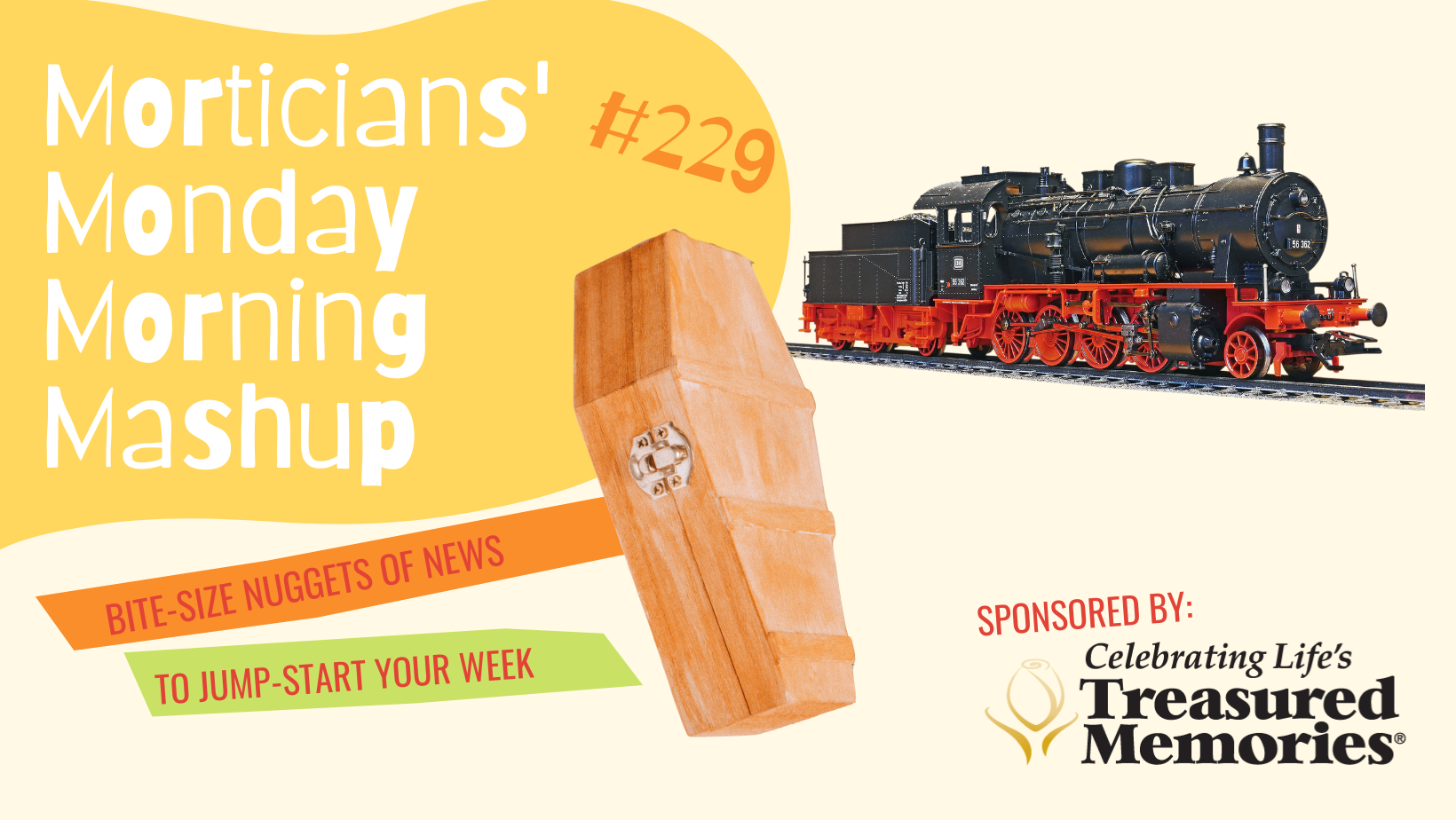Stronger Apart…The Case for Dual Licensure
Connecting Directors is grateful to Jennifer Graziano for sharing this timely and important essay with our readers! Jennifer is a 4th generation funeral director and attorney with a passion for the industry. She serves on the NYS Board of Directors as a Regional Director of NYC & Westchester and she also develops continuing education course offerings. She strongly believes in advocating for the advancement of the funeral industry as well as it’s ability to adapt and remain relevant in the changing world that lies ahead. She is also the founder of RememBar, a collection of fine memorial jewelry. Jen lends her time to several local boards and causes and most importantly, is a proud mother to her daughter, Mia.
There is no secret nor dispute that the funeral profession is suffering from an unprecedented labor shortage. If you speak to any funeral home owner or manager, the common cries include being understaffed and overworked. This vicious cycle often culminates in untimely burnout and perhaps even a premature exit from the industry. It’s inevitable, there is only so much of this heavy load, we as directors can shoulder before we break.
In a recent summit I attended addressing labor concerns in the industry, the focus was on employee retention. While there is always some meaningful takeaway from any professional conference, I reckon that in this particular instance, the mark was missed. The labor-related issue plaguing our industry is not employee retention but rather, employee entry. With barriers such as the current form of the NBE, the (over)extensive curriculum of many mortuary programs combined with embalming requirements for licensure, many ask themselves “why bother”.
One of the greatest barriers to entry in our field has long been the embalming requirement that is found in states with unified licensure. My personal feelings, for what they’re worth, is that the time has come (arguably passed) to sever unified licensure in favor of a dual license model. The State of New Jersey, well, at least SCI, agrees with me. In recent legislation introduced into the state assembly in March of this year, Assembly Bill 3940, it was stated on record that “The existing funeral professional licensing system, by requiring proficiency in embalming for licensure as a funeral professional, discourages entry into the funeral services profession of persons who are reluctant to practice embalming but would be eager to serve their communities by arranging funerals. During the last several years, and particularly during the 2019 coronavirus pandemic, it has become clear that there is a shortage of licensed funeral service professionals in New Jersey, a problem which, in part, could be remedied by removing outmoded barriers to entering the funeral services profession. Therefore, it is in the public interest to revise the existing system of funeral professional licensure to more readily”.
As there are two schools of thought (at least) on most issues, it is worth noting that the NJFDA does not yield its full support to the bill, but rather, cautions the potential difficulties that could arise from ambiguities in what constitutes the roles of “arrangers”, “directors” or “embalmers”. Other concerns that have been expressed include current mortuary science curriculums, that include heavy concentration on embalming. These programs would not be easily amended to eliminate such a course of study. I would always argue that embalming should be part of a mortuary curriculum, but perhaps students seeking a career path of “arranger/director” would have limited embalming prerequisites. Perhaps their course of study would avoid clinical work, but rather would equip with a generalized knowledge of the subject, one that would enable them to speak intelligently to families when discussing the viewability of their loved one. Overall, I personally think the pros outweigh the cons regarding split licensure. Details can always be finetuned and flushed out as to what roles require and entail, but all of this is a moot point unless we have people entering our field and seeking to fulfill these roles.
We are a service-oriented industry, why not make way for the entry of service-oriented professionals? Service has long been the hallmark of this profession, and where we funeral directors, hung our hat. Today you see recent graduates of mortuary science programs jump quickly on board to work “the trade”. Many graduates are enticed by the opportunity of “easy” money, not having to work with families one on one, making their own hours, not wearing a suit, not sitting at a desk or stuck within the confines of an office, thus they enter the trade. But the trade is not funeral service. It is a necessary and vital organ of the funeral industry, but service, I argue, has always been the heart of the profession. We, as funeral directors, were called to serve the most vulnerable of people during their weakest moments, It was a task that many wholeheartedly embraced and still do. It was an honor for many to don their best suit, straighten their tie and sit across from a family at the arrangement conference table. It was among the most meaningful acts we could to do offer an embrace as a tearful family member walked through our door. The emotional gravitas of our work has long been a labor of love. Truthfully, you can’t put a price on the hours we put in coupled with the heavy weight of emotions we carry. But we’ve done it, nonetheless, because we felt the call to serve.
Current models of licensure in many states which require embalming are short sighted for a multitude of reasons. First, statistics show a steady decline of traditional funeral services requiring embalming for visitation, across every state. In addition, a hospitality-minded, customer service-oriented individual arguably lacks the clinical and technical skills of an embalmer. Without a doubt, an arranger and embalmer are two different people: nonetheless, each of equal importance in our industry. It is a dichotomy in our profession that we require a workforce of such diametrically opposite skill yet we insist on joining them under one license.
While I strongly believe in the need for licensure and the requisites by which a license is granted, it’s time for states to recognize that a dual license model best serves our industry. By maintaining one unified license, we are sacrificing the service aspect of our industry and those who would be willing to serve. Think about the unlicensed personnel in your office, who have wonderful abilities to connect and communicate with your client families. How valuable could they be in the arrangement room or even at graveside?
Today, many embalming professionals have a presence on social media where they document the clinical aspects of their work. It is again no secret that there are many of this breed who adopt a certain image of piercings, dark painted nails, excessive tattoos and a propensity for all that is gory and gruesome to the eye. Not by any means a knock to those in this category, simply an observation. And while the skill of these embalmers is unique, valued and in high demand, we can’t overlook the need for the appearance and skillset that arrangers and directors bring to the table. These are two different breeds. The funeral industry should be welcoming veterans of the hotel and hospitality industry, social workers, event planners, or anyone with the inherent gift of connecting with people, into our world.
State boards must recognize the current trends of mortuary students and further, must adapt. We are losing out on a strong potential workforce. We’re holding out from our applicant pool people who are ready, willing and able to take the phones on nights and weekends, meet with families, create meaningful funerals and memorials, and arguably, enhance the bottom line of our revenue based on their ability to showcase the many offerings for services and merchandise in the funeral home. Licensure should always be protected, whether funeral director or embalmer, there should be prerequisites, mandated CEU curriculum, as well as penal implications and remedies for those who abuse their license. Under dual license models, states are protected with their licensure revenue. BUT if more states are bold enough to make this move, the industry will be given a needed lifeline. Credit to you, New Jersey! Let’s hope other states follow suit. In the end, if we don’t fight for the life of funeral service, we are on the brink of becoming a transactional industry, with no more hugs or handshakes, but rather everything a click away and an industry filled with tradesmen.




